Brain/Neuroscience
Can plants ‘learn’?
When we consider the propensity to learn, plants are probably the last living beings that come to mind. They seem ...
Brain too clever to be fooled by virtual reality
The faceputer ads say virtual reality is coming and it's gonna work this time. But here's some real talk: There ...
Anti-organics researcher foodies love: Brian Wansink explains how to ‘trick’ ourselves into eating healthier
Brian Wansink, a Cornell food psychologist runs Cornell's Food and Brand Lab, devoted to studying how our physical surroundings—everything from supermarket ...
‘The Dress’ debate rages on: 23andMe tackling genetics behind illusion
The Internet has finally recovered from the great dress debate of 2015, but genetic testing firm 23andMe is still focused ...
Head trauma linked to severe neurological problems for professional football players
The types of brain damage that can occur as a result of being a professional football player have received increased ...
NY Times article sparks call for greater ethical awareness in science journalism
Major media, New York Times included, have a history of hyping up what turned out to be erroneous claims linking complex ...
Gold particles provide luminous peek into brain
Light can be used to activate normal, non-genetically modified neurons through the use of targeted gold nanoparticles, report scientists from ...
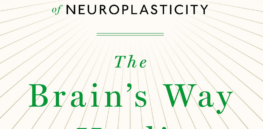
Unlocking healing powers of the ‘neuroplastic’ brain: Norman Doidge on why ancient faith healers may have been right
Organizational anthropologist and new GLP contributing writer addresses the 'mysteries of the mind'--how the natural plasticity of the brain can ...
Anus is no laughing matter: How unlikely organ shaped animal evolution
The anus is one of the most important parts of many animals; an essential structure that changes how an organism’s ...
False memories implanted in mouse’s brain during sleep
Mice can recall artificial memories created during sleep once they’re awake, researchers from the French National Center for Scientific Research ...
Will genetically modifying embryos create real life dystopia?
Citing safety fears for babies, genetics researchers called for a halt to experiments that would alter the DNA of human ...

Evolution is weird: Killer diseases save lives and make us smarter?
Inflammatory bowel disease, psoriasis, Tay-Sachs disease and certain breast cancers can kill you or make life very challenging. So why ...
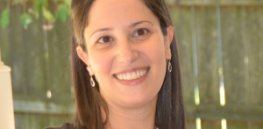
#ScientistsArePeople! “Mommy PhD” campaign challenges anti-GMO death, rape threats against scientists
I'm a scientist. Yet when I go on to advocacy blogs to share science-based information, my comments are deleted. I’m ...
To begin to understand the brain, we need to first identify what we don’t know
In trying to brainstorm a list of unsolved problems in neuroscience, I read the a multitude of sources and asked ...
Why touch is so important to emotional, physical wellbeing
Touch is the first of the senses to develop in the human infant, and it remains perhaps the most emotionally ...
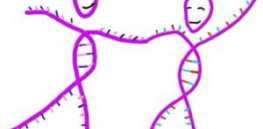
Is dancing success ‘in your genes’?
Dance may have evolved for a variety of reasons. To what degree are athletes hardwired? Can your moves on the ...
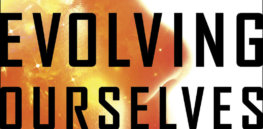
The Death of death? Review of “Evolving Ourselves” and unnatural selection
The meat of this controversial new book is the immense array of futurist and transhumanist possibilities for driving change on ...
Can Arctic apples be ‘poster child’ for GMOs?
Count me among the bystanders shouting encouragement to the gladiator to go in for the kill. The GMO arena seems ...
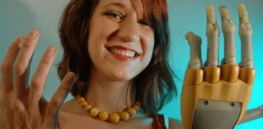
We have the technology to make bionic hands
Bionic hands and other limbs are not futuristic hopes. Three people already have bionic hands that have been attached surgically ...
How much of our DNA is junk?
The human genome contains around 20,000 genes, that is, the stretches of DNA that encode proteins. But these genes account ...
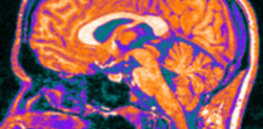
Faustian bargain: Has Huntington’s disease killer mutation contributed to human IQ?
Huntington's disease is awful. It slowly robs its victims of mobility, wits and emotions. And there is no cure. The ...
You probably inherited more traits from Dad than Mom
We humans get one copy of each gene from mom and one from dad (ignoring those pesky sex chromosomes) – ...
Natural aptitude for math emerges early in life
Scientists have found that we may actually be born with a deep instinct for numbers. And a new study suggests ...
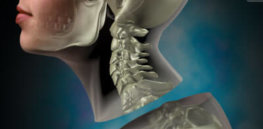
Lost your head? Sorry, you can’t get a new one anytime soon
Last month, Italian neurosurgeon Sergio Canavero made waves when he announced he’d discovered the key to performing a totally crazy surgery: ...

DeepMind: Computer games manna for creating Artificial Intelligence
DeepMind, the Google-owned artificial-intelligence company, has revealed how it created a single computer algorithm that can learn how to play ...
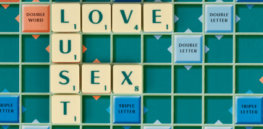
Sex, drugs and … vocabulary? Hedonism not only thing that rewards the brain!
For some people, learning new words activates the same machinery in the brain as sex, drugs and possibly fatty and ...
Why we crave sugar and why it’s so hard to stay away from it
In neuroscience, food is something we call a “natural reward.” In order for us to survive as a species, things ...

